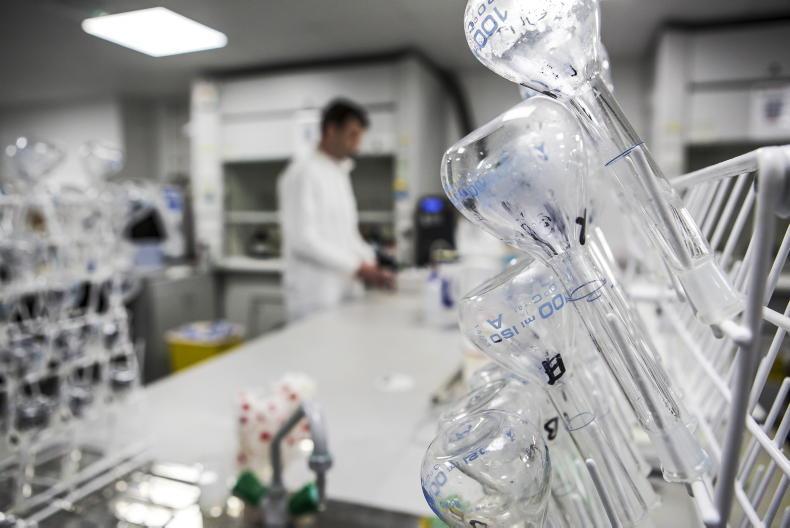The Irish beef industry rightly celebrated the good news this week that Egypt was again open for Irish beef. The first time since 2000. However, just because it was taking 100,000t of Irish beef back then – 20% of total Irish exports – we cannot expect it to pick up where it left off.
Selling beef was a different business as recently as the beginning of this century. For much of the 1990s, BSE was the dominant issue in the industry, followed by foot-and-mouth disease in 2001.
Export refunds
Irish beef was solely a commodity product – sold fresh to the UK and mainland Europe wholesale markets, or frozen outside Europe with the assistance of EU export refunds. These were essentially a subsidy provided by the EU to factories to sell surplus EU production to external markets.
The EU has since decided to cease providing this support, in what has been described as unilateral disarmament. This is all the more notable given that Argentina has recently decided to introduce export refunds on its beef, up to 5% of its value.
Ireland will therefore try to do business in Egypt, not only on the basis of the world’s most regulated and highest-cost production system, but against competitors that benefit from export support from their own government.
Halal slaughtering
The other big issue for the Irish beef industry that was not as important at the beginning of the century is Egypt’s requirement that cattle be slaughtered in the halal tradition, which is considered by many to be less animal welfare friendly. This is disputed by the predominantly Muslim countries that require this style of slaughter. But whatever the pros and cons, most major UK retailers won’t allow their suppliers of beef to use halal slaughter, despite carrying several ranges of halal products in their stores. This probably explains why so many prominent Irish meat factories are not approved and chasing business in Egypt at present.
Other issues still need to be resolved, including the age of animals that Egypt will accept – many non-EU countries insist on a 30-month limit from countries with a controlled BSE risk, like Ireland. There are reports that Egypt could accept 36- or even 48-month-old cattle, but this remains to be finalised. The “technical arrangements” mentioned by Agriculture Minister Michael Creed when announcing the re-opening of Egypt are just that and not thought to cause any significant delay.
20,000t would be an achievement
Securing access to Egypt will be extremely useful to the Irish meat industry as it is expected to handle 1.75m cattle this year. However, it would be wrong to think that it will be a major game changer. It will be more comparable with Hong Kong and the Philippines: buying substantial quantities of lower-value product that can quickly fill up cold stores when markets are weak.
If we can achieve 20,000t of sales to Egypt, one fifth of the previous business, it would be quite an achievement and would make it the most important single destination outside the EU for Irish beef exports.
Read more
Full coverage: Egyptian market
The Irish beef industry rightly celebrated the good news this week that Egypt was again open for Irish beef. The first time since 2000. However, just because it was taking 100,000t of Irish beef back then – 20% of total Irish exports – we cannot expect it to pick up where it left off.
Selling beef was a different business as recently as the beginning of this century. For much of the 1990s, BSE was the dominant issue in the industry, followed by foot-and-mouth disease in 2001.
Export refunds
Irish beef was solely a commodity product – sold fresh to the UK and mainland Europe wholesale markets, or frozen outside Europe with the assistance of EU export refunds. These were essentially a subsidy provided by the EU to factories to sell surplus EU production to external markets.
The EU has since decided to cease providing this support, in what has been described as unilateral disarmament. This is all the more notable given that Argentina has recently decided to introduce export refunds on its beef, up to 5% of its value.
Ireland will therefore try to do business in Egypt, not only on the basis of the world’s most regulated and highest-cost production system, but against competitors that benefit from export support from their own government.
Halal slaughtering
The other big issue for the Irish beef industry that was not as important at the beginning of the century is Egypt’s requirement that cattle be slaughtered in the halal tradition, which is considered by many to be less animal welfare friendly. This is disputed by the predominantly Muslim countries that require this style of slaughter. But whatever the pros and cons, most major UK retailers won’t allow their suppliers of beef to use halal slaughter, despite carrying several ranges of halal products in their stores. This probably explains why so many prominent Irish meat factories are not approved and chasing business in Egypt at present.
Other issues still need to be resolved, including the age of animals that Egypt will accept – many non-EU countries insist on a 30-month limit from countries with a controlled BSE risk, like Ireland. There are reports that Egypt could accept 36- or even 48-month-old cattle, but this remains to be finalised. The “technical arrangements” mentioned by Agriculture Minister Michael Creed when announcing the re-opening of Egypt are just that and not thought to cause any significant delay.
20,000t would be an achievement
Securing access to Egypt will be extremely useful to the Irish meat industry as it is expected to handle 1.75m cattle this year. However, it would be wrong to think that it will be a major game changer. It will be more comparable with Hong Kong and the Philippines: buying substantial quantities of lower-value product that can quickly fill up cold stores when markets are weak.
If we can achieve 20,000t of sales to Egypt, one fifth of the previous business, it would be quite an achievement and would make it the most important single destination outside the EU for Irish beef exports.
Read more
Full coverage: Egyptian market









SHARING OPTIONS